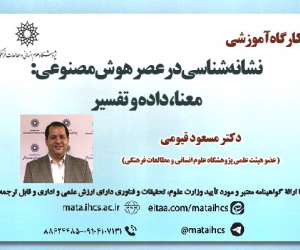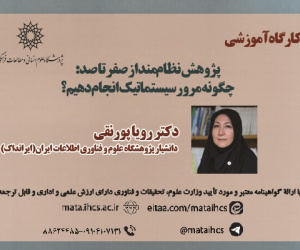رساله ای در باب مدارا: ممیزی دینی و اخلاقی کتاب در حقوق ایران
آرشیو
چکیده
علی رغم حمایت از آزادی بیان در قانون اساسی ایران، کتاب وفق ماده 4 «مصوبه اصلاحی اهداف، سیاست ها و ضوابط نشر کتاب» مصوب 1389 شورای عالی انقلاب فرهنگی، در حقوق موضوعه با ممیزی مواجه است و مواردی ذیل عنوان «دین و اخلاق» به عنوان حدود بیان در قالب کتاب ذکر شده است. در این پژوهش، صرف نظر از عدم صلاحیت شورا در ایجاد محدودیت برای آزادی بیان، جهات ممیزی دینی و اخلاقی در مصوبه با قوانین انطباق داده شده است. نتیجه نشان دهنده آن است که مقرره شورا، در موارد «انکار یا تحریف مبانی اسلام»، «مخدوش کردن چهره شخصیت هایی که از نظر دین اسلام محترم شمرده می شوند»، «توهین، تخریب یا افترا به افرادی که حفظ حرمت آنها شرعاً و یا قانوناً لازم است»، «توهین به مقدسات»، «ترویج و تبلیغ ادیان، مذاهب و فرقه های منحرف و منسوخ، تحریف شده و بدعتگذار»، «بیان جزئیات مراودات جنسی، کلمات رکیک و مستهجن، به نحوی که موجب اشاعه فحشا شود» و «انتشار تصاویر به نحوی که موجب اشاعه فحشا شود»، مطابق با قوانین است. اما جهات ممیزی با عنوان «تبلیغ و ترویج الحاد و اباحه گری»، «انکار یا تحریف احکام اسلام»، «تحریف وقایع تاریخی دینی که مآلاً به انکار مبانی دین منجر شود»، «تبلیغ علیه تعالیم اصول و مبانی اسلام»، «ترویج خرافات و مخدوش کردن چهره اسلام»، «بیان جزئیات گناهان»، «استفاده از جاذبه جنسی با عنوان آثار هنری یا هر عنوان دیگر»، «نشان دادن چهره شخصیت های منفی»، «ترویج مادی گرایی فلسفی و اخلاقی و سبک های زندگی مخالف ارزش های اسلامی و اخلاقی» و «خشن جلوه دادن چهره اسلام و مسلمانان واقعی» با قوانین مغایرت داشته و شایسته اصلاحند.A Treatise on Tolerance: Religious and Ethical Censorship of Books in Iranian Law
Despite the support for freedom of expression in the Constitution of Iran, books are subject to censorship under Article 4 of the "Amended Resolution on the Objectives, Policies, and Regulations of Book Publishing" approved in 2010 by the Supreme Council of the Cultural Revolution. This censorship is reflected in the national laws, specifically under the category of "religion and ethics" as limits on expression within books. This study, regardless of the council's lack of authority to impose restrictions on freedom of expression, compares the grounds for religious and ethical censorship in the resolution with existing laws. The results indicate that the council's regulations are consistent with the laws in cases such as "denial or distortion of the foundations of Islam," "defacing the image of figures considered sacred in Islam," "insulting, damaging, or slandering individuals whose dignity must be preserved legally or religiously," "insulting sacred matters," "promoting and propagating deviant, obsolete, distorted, and innovative religions, sects, and factions," "depiction of sexual interactions, obscene and vulgar words in a way that promotes immorality," and "publishing images in a way that promotes immorality." However, censorship grounds labeled as "promoting atheism and libertinism," "denial or distortion of Islamic rulings," "distortion of religious historical events that ultimately leads to denial of religious foundations," "propaganda against the teachings and principles of Islam," "promoting superstition and defacing the image of Islam," "detailed descriptions of sins," "use of sexual attraction under the guise of artistic works or any other title," "depicting negative characters," "promoting philosophical and ethical materialism and lifestyles opposed to Islamic and ethical values," and "portraying Islam and true Muslims as violent" are inconsistent with laws and require revision.







